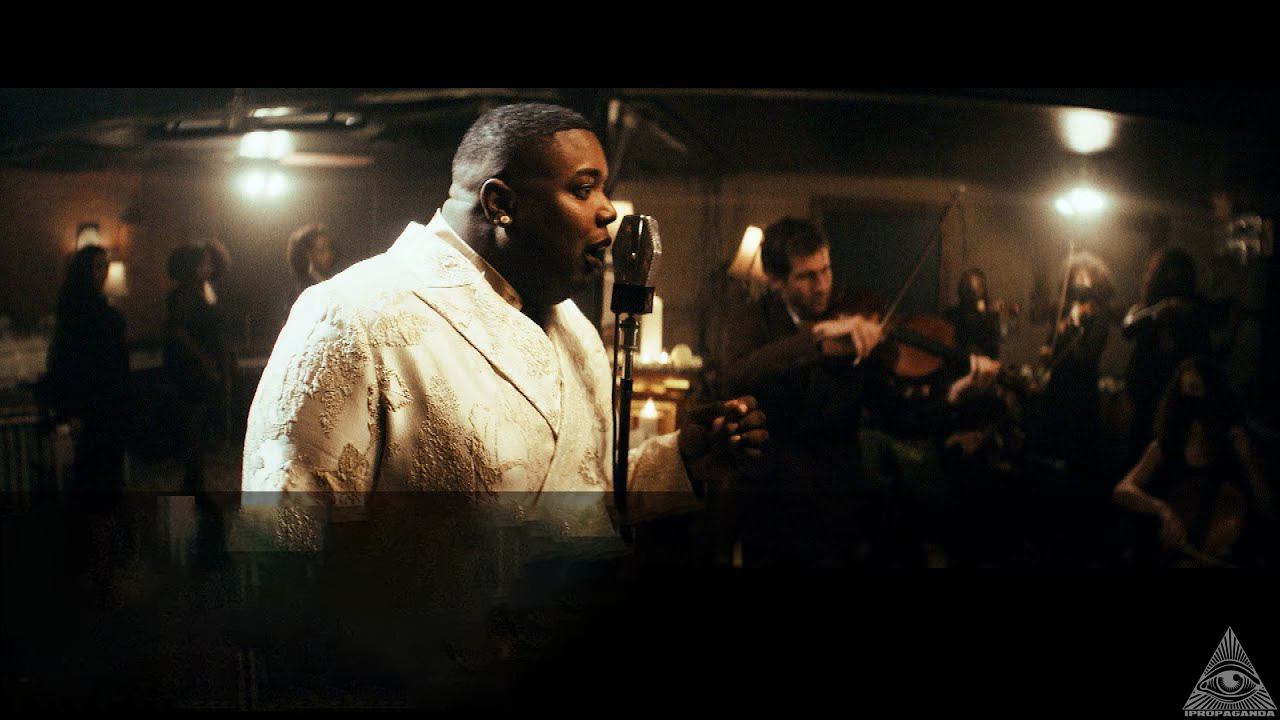
Time-Capsule for the Dance Floor and the Soul
Introduction
A brief introduction to Gabriels. Gabriels are a Los Angeles trio: vocalist Jacob Lusk with producer-composers Ari Balouzian and Ryan Hope. Their collaborative chemistry folds classic soul, orchestral colors, and contemporary R&B into something that feels devotional yet cinematic. “Love and Hate in a Different Time,” released December 4, 2020, became their calling card—first as a single and centerpiece of a five-track EP—and helped place the group on stages and playlists far outside LA.
The big idea behind the title track
On the surface, “Love and Hate in a Different Time” is a stately, hand-clap soul song that would make sense next to vintage gospel-soul 45s. Underneath, it is a lament about togetherness fraying in the modern era. The band frames a simple, aching message: communities once found relief by gathering—especially to dance, testify, and sing—yet the speed and noise of the information age make that communion harder to hold.
Lusk’s vocal delivers this thesis like a sermon: tender one moment, thunderous the next. Phrases about walking among the “walking dead,” comfort found in rod and staff, and losing something “in the fire” turn the song into a spiritual reckoning—personal, civic, and historical at once. The tension between sacred language and secular groove is the record’s electricity.
Tiny lyric snapshot for context: “We lost it in the fire / love and hate in a different time.”
(Quoted briefly for analysis.)
The short film: a love letter to cameras, dancers, and collective joy
Accompanying the song is a short film that plays like a time machine. It traces the long relationship between moving-image technology and social dance: reels, tape, and digital clips where people form circles, learn steps, and find release. By stitching eras together, the film suggests that while tools evolve—from film stock to phones—the human impulse to move together is constant.
There’s a question at the film’s core: has the always-on, scroll-driven present sharpened our divisions and made shared spaces feel disposable? The montage doesn’t scold; it remembers. It shows the lengths people once went to connect—organizing dances, saving up for records, waiting all week for a party—and asks what it would take to defend that kind of intention now.
How it sounds: gospel spine, orchestral lift, modern pulse
- Vocal architecture: Lusk’s phrasing nods to church soloists—melisma used sparingly, dynamics used decisively.
- Arrangements: Strings and keys bloom around tight rhythm parts, giving the music a widescreen feel without crowding the groove.
- Production choices: Nothing is over-processed. You hear air, hands, and breath; when the drums lock with the claps, the track feels lived-in rather than lacquered.
The overall effect is paradoxical in the best way: vintage warmth with contemporary clarity; Sunday-morning resonance with Friday-night release.
Track-by-track overview (EP)
The EP Love and Hate in a Different Time runs five songs, mastered by Christian Wright at Abbey Road, and originally issued digitally and on a picture-sleeve 12-inch. Each piece engages the record’s central theme—memory versus immediacy—from a different angle.
- “Loyalty” (2:36) – A compact overture about allegiance and cost. Short runtime, big stakes; it sets the emotional key for what follows.
- “In Loving Memory” (2:53) – Grief song as torch song. The melody carries like a hymn; the rhythm keeps it conversational rather than grandiose.
- “Professional” (3:54) – A character sketch wrapped in velvet strings. The title hints at role-playing—how we mask longing and pain in public spaces.
- “Love and Hate in a Different Time” (4:42) – The axis of the EP: gospel-soul cadence, call-and-response heartbeat, a chorus that reads like a thesis.
- “The Blind” (4:12) – A closing meditation that feels like benediction—reflective, patient, quietly radiant.
Themes that keep echoing
- Togetherness versus speed: The record contrasts slow, deliberate connection with the “super-fast, throw-away” feel of the moment.
- Ritual and refuge: Dancing, singing, and gathering aren’t mere entertainment here; they are civic rituals that help people metabolize fear and hardship.
- Memory as resistance: By invoking older sounds and film textures, Gabriels insist that the past can be a resource, not just an aesthetic.
Why it hit listeners so hard
Even before their rise to major festival stages, Gabriels developed a word-of-mouth reputation for performances that feel like events. Fans describe the music as “pure musical spirit” and “the deepest soul of soul music,” and some single out both the title track and “The Blind” as personal touchstones. Those reactions make sense: the EP asks for focus and gives catharsis in return—a fair trade in anxious times.
Craft notes and release details
- Format: Digital release with high-quality downloads (16-bit/44.1 kHz), and a limited 12-inch vinyl edition.
- Mastering: Christian Wright, Abbey Road—an audible choice; the EP breathes even when arrangements swell.
- Home base: Los Angeles, California.
- Core lineup: Jacob Lusk (lead vocals), Ari Balouzian and Ryan Hope (production/composition).
A small cultural argument, hidden in a soul record
“Love and Hate in a Different Time” doesn’t lecture about algorithms or polarization; it does something braver: it invites people into a room—literal or imagined—where the first rule is to listen and the second is to move. The short film shows how technology can preserve that room or flatten it; the music models how to build it back, one voice and one downbeat at a time.
If you’re just discovering Gabriels
Start with the title track to feel the project’s heartbeat. Follow with “The Blind” for its quiet lift, then circle back to “In Loving Memory” to hear how the group translates mourning into motion. If the EP resonates, seek out live clips: the songs expand onstage without losing their intimacy.
